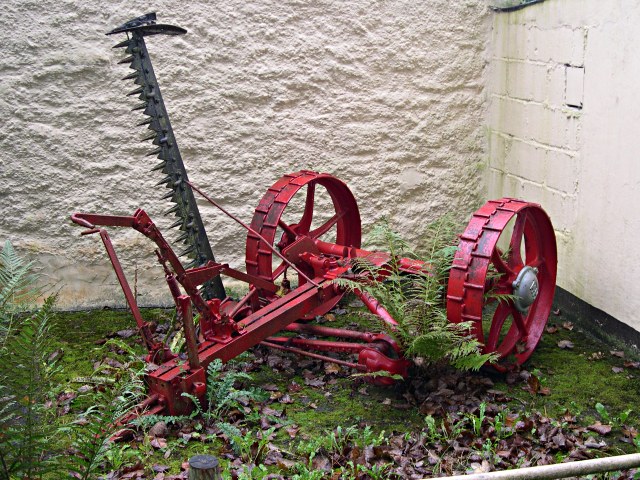

McCormick spent years making improvements to the mechanical reaper invention and coming up with business innovations to boost sales (including credit for purchases, performance guarantees, replacement parts and advertising). Despite the amazing potential of the invention, most farmers remained uninterested. In 1834, inventor Cyrus McCormick took out a patent on his invention and, soon after, began manufacturing the reaper himself. McCormick's invention automatically cut, threshed and bundled grain while being pulled through a field by horses. In 1831, twenty-two-year-old Cyrus took over his father's project and, within six weeks, he had built, field-tested, remodeled and successfully demonstrated the world's first mechanical reaper. The initial idea and design for the reaper actually came from Cyrus McCormick's father, Robert, who worked on the invention for 16 years. Prior to this invention, reaping was a painstaking process (done by hand with a scythe) that limited a farm's harvest. It makes me wonder just how many other inventions and forms of technology were lost during that time, and if they have all been recreated or we are still waiting to reinvent something.Not long after Eli Whitney invented the Cotton Gin, Cyrus McCormick invented another significant agricultural invention that revolutionized farming: the mechanical reaper. I had never read before that the Romans' first mechanical reaper technology had been lost.

I admire those farmers who, even today, still reap crops by hand. While mechanical reapers do save a lot of time, they also can have a great margin of error. Who is the inventor: Cryus McCormick or Robert Hall McCormick? October 31, - Robert Hall McCormick came up with the basic idea for it, and then Cyrus, his son, improved on that idea and then patented it.
MCCORMICK REAPER PLUS
Plus having mechanical reapers takes jobs away from people who might otherwise be able to make a living.

Thats why more than one-third of the entire output of the. It reads, 'The world demands the best mowers and reapers. This advertisement was published on July 4, 1896. After several improvements to the design, he established a harvester factory in Chicago in 1847. And they are the ones who spring back much more quickly. In 1834, inventor Cyrus McCormick took out a patent for a horse-drawn reaper. Which might not sound like it matters much, but if you've got a good proportion of predators to pests in your fields, you don't have to worry so much about the pests. The mechanical harvesters not only waste a lot of grain, they are also very destructive to the ecosystem that gets set up in the fields, while harvesting by hand allows the field dwellers time to get away. So, yeah, I think that the mechanical reaper invention didn't deprive that many people of jobs.įebruary 15, - I do as well. Harvesting requires a high level of fitness and skill as well and it usually happens all at once, so harvesters can't go from farm to farm all year. When they aren't used, more people are needed to harvest, but harvesting is only a few days worth of work per year, particularly on farms without many different kinds of crops (and a wide variety usually means different kinds of harvesters anyway, some of which are still people). They increase the amount of farmland each individual farmer can work, which means that more people are required (in theory) to help with other tasks. Cool article, but who really did it? The father or son? A lot of other inventions have had the same questionsįebruary 16, - I can see that argument working with other forms of mechanization, but I think with a harvester it's much more difficult to tell whether they make it more or less difficult to get a job.


 0 kommentar(er)
0 kommentar(er)
